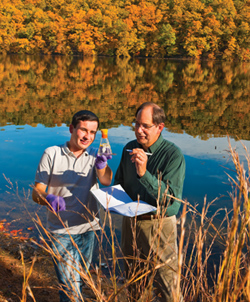“We learn from failures, so we should take the opportunity this disaster has provided to improve the way we extract oil via offshore drilling. With such a massive release, there will be substantial harm to the ecosystem. The acute effects are terrible and very visual.
“But once the source has been stopped, most of the acute damage will no longer be present within six months to a year. Oil has been on the earth since geological time, and microorganisms exist that are able to rapidly biodegrade a good fraction of the oil, particularly when it has been diluted. First, the oil will get dispersed through precipitation, water flow, evaporation, and weathering. These will help promote biodegradation. Natural purification will continue, and within a few years there should be near full recovery of the ecosystem. The addition of fertilizer can stimulate microbial activity and enhance the oil biodegradation.
“The earth is very good at assimilating small releases of petroleum. The climate in the Gulf will also help speed biodegradation because microbes are more active in a warm environment, breaking down the oil faster.”
— Edward Bouwer, the Abel Wolman Professor of Environmental Engineering, also serves as the chair of the Department of Geography and Environmental Engineering. His areas of research include how microbes transform contaminants in soil and water.

